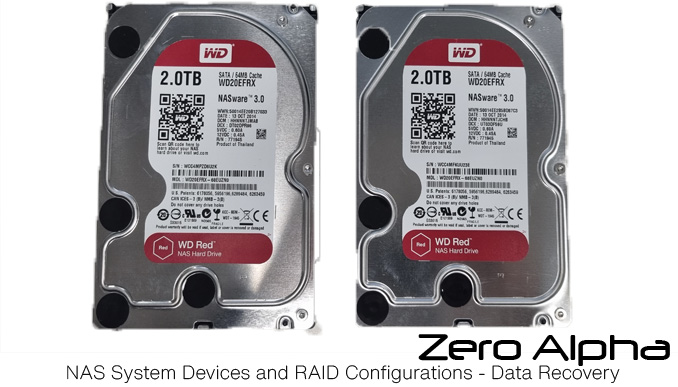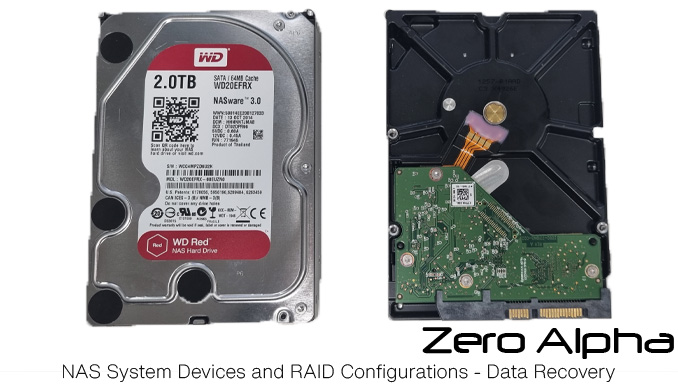NAS System Devices and RAID Configurations
Data Recovery
A NAS system, short for Network Attached Storage, offers versatile centralized storage for homes, small businesses, and even some medium-sized enterprises. With the capacity to hold up to four hard drives or SSDs, these systems support various RAID configurations for data redundancy and performance optimization. They provide accessible and shared storage over a network, enabling seamless file sharing, media streaming, and collaborative work. These NAS units often act as reliable backup solutions, and their media server capabilities facilitate streaming to compatible devices. Scalability options, remote access features, and a diverse software ecosystem contribute to their popularity. When selecting a NAS, consider factors like storage needs, budget, and desired features to find the ideal fit among reputable brands such as Synology, QNAP, Western Digital, and NETGEAR.

The above hard drives come out of a NAS system with a 4 drive RAID configurations. Due to the way NAS hard drives read and write data onto the drive, they cannot be read simply by connecting them into your device. This may cause problems and corruption issues for the hard drive and is not recommended. Taking these hard drives into a Data Recovery service such as Zero Alpha will allow the hard drives to be handled correctly using specific programs to recreate the RAID configurations and properly read the drives.

Common Causes of Data Loss
One of the most prevalent sources of data loss in a 4-bay NAS system is drive failures. These drives are the core components of the NAS setup, and issues arising from hardware malfunctions or natural wear and tear over time can lead to significant data loss risks. Additionally, the complexities of RAID configurations, designed to provide data redundancy, can also contribute to data integrity compromises. Misconfigurations or multiple drive failures within a RAID array can potentially jeopardize the accessibility and safety of stored data. Accidental file deletion or corruption, often resulting from user errors, software glitches, or malware attacks, can further exacerbate data loss concerns. The vulnerability of NAS systems to power surges and electrical disruptions, which can disrupt normal operations and potentially damage drives, presents another critical cause of data loss. Lastly, environmental factors like exposure to water damage, excessive heat, or physical impact can render both drives and the stored data inaccessible, amplifying the importance of safeguarding measures.
Preventive Measures
To preempt the potential risks of data loss, a series of preventive measures can significantly bolster data protection. A consistent and well-planned backup strategy, incorporating regular backups to external sources, acts as a powerful safety net against unexpected data loss incidents. Diligently monitoring the health and status of your RAID array constitutes another proactive measure. By promptly addressing any emerging issues, you can mitigate the potential for data loss due to RAID configuration problems. Ensuring the physical environment of your NAS system is optimal is equally crucial. Placing the NAS system in a cool, dry, and well-ventilated area helps counteract overheating risks, a significant factor in drive deterioration. Lastly, safeguarding against power fluctuations and outages is vital. Employing uninterruptible power supplies (UPS) fortifies your NAS system against the adverse effects of sudden power disturbances, providing enhanced protection against potential data loss.